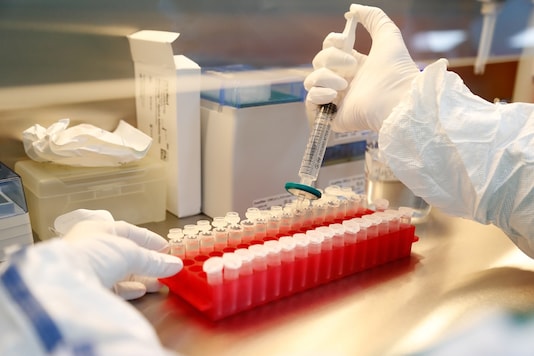A Russian virologist and professor who deliberately infected himself with coronavirus in an experiment to become ill for a second time says the hopes for herd immunity are exaggerated, Daily Mail reported.
Dr Alexander Chepurnov, 69, was on a skiing trip to France in February this year when he got infected. He did not require hospitalisation and recovered after coming back home in Siberia. His exposure to coronavirus, however prompted Chepurnov and his team of researchers at the Institute of Clinical and Experimental Medicine in Novosibirsk to start a study on the virus' antibodies.
Antibodies Vanished After 3 Months
The professor and his team found that the antibodies decrease rapidly in the body. His team, who mostly researched on the antibody behaviour and their longevity inside the body, found that almost 3 months after he was first infected, the antibodies were no longer being detected.
"By the end of the third month from the moment I felt sick, the antibodies were no longer detected. So I decided to examine the probability of reinfection," Chepurnov was quoted as saying.
He then decided to do something dangerous, become a human guinea pig for the experiment and thus exposed himself knowingly to Covid-positive patients.
Reinfection Showed Severe Symptoms
Chepurnov said his body's defence mechanism fell exactly six months after he was infected the first time and the infection was severe the second time when he caught it and he had to be hospitalised, the first sign of which was a sore throat.
"For five days, my temperature remained above 39C or 102 F. I lost my sense of smell, taste. On the sixth day of the illness, the CT scan of the lungs was clear, and three days after the scan, the X-ray showed double pneumonia," Chepurnov was quoted as saying.
Chepurnov said the virus went away rather early and within 2 weeks he could not detect any remnants of it.
Virus Here to Stay
Inferring from his research, Chepurnov says he believes that the concept of herd immunity should be taken with a pinch of salt as that seems to be a far-fetched hope so far. He believes the virus will stay for a much longer period of time and although vaccines might come in handy for a short period of time, the requirement is of a vaccine that can be used multiple number of times. He says the disappearance of the antibodies will prevent the people from developing a collective immunity.
'Once injected with an adenoviral vector-based vaccine, we won't be able to repeat it because the immunity against the adenoviral carrier will keep interfering.'
Chepurnov has formerly worked at State Research Vector Centre of Virology and Biotechnology in Siberia, those who made Russia's second vaccine against Covid-19 known as EpiVacCorona which will require repeat injections to maintain immunity, say doctors.
The EpiVacCorona followed the Sputnik V vaccine which is now being given to essential workers.
Herd Immunity or Herd Protection, according to the John Hopkins University is when most of a population is immune to an infectious disease, this provides indirect protection—or herd immunity (also called herd protection)—to those who are not immune to the disease.
For example, if 80% of a population is immune to a virus, four out of every five people who encounter someone with the disease won’t get sick (and won’t spread the disease any further).
Antibodies against SARS-CoV-2 reduced rapidly in the British population during summer, a study has found, thus sparking the topic of decreasing protection among community.

